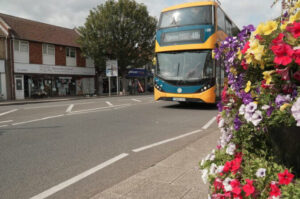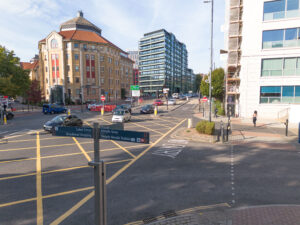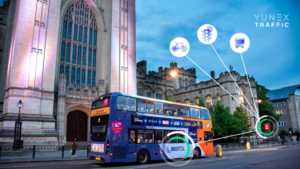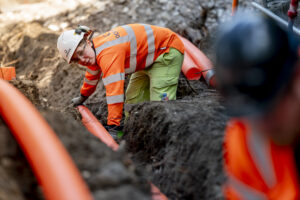Bristol’s clean air zone will be introduced in the summer of 2022, with residents and businesses receiving a strengthened package of support to help them adapt to the changes to tackle pollution in the city.
The introduction of the zone will include support for residents to upgrade to cleaner vehicles and more sustainable travel habits, while seeing older and more polluting vehicles charged to drive through the city centre as outlined in plans that were submitted to the government by Bristol City Council in February of this year.
The authority worked closely with the government’s Joint Air Quality Unit (JAQU) to ensure the additional support, with the implementation of the zone meaning the city will remain on track to reduce pollution caused by traffic to within legal limits by 2023, a date that has been brought forward significantly since work started on the clean air zone.
Nearly three-quarters of vehicles (71%) travelling into the zone are already clean enough and won’t be charged. This percentage is likely to increase when citizens and businesses take advantage of financial support from the council to switch to a cleaner vehicle or more sustainable form of travel.
A loans and grants scheme to help citizens and businesses upgrade their vehicles will be launched later this year.
In addition, more people will now be eligible for financial support after Bristol City Council raised its low-income threshold from £24,000 to £27,000 by early 2022 – 20% than the Office for National Statistics (ONS) calculation of low incomes in the city.
Other support measures include:
- £2.1m being made available for local bus and coach companies to help them buy cleaner vehicles or upgrade existing vehicles to meet the Clean Air Zone’s emission standards.
- Over £32m made available to help businesses upgrade to cleaner vehicles. Commercial vehicle owners in the zone with existing finance agreements will also be able to apply for a one-year exemption.
- All residents inside the zone with a non-compliant vehicle will be offered a one-year exemption to give them time to apply for financial support to switch to a cleaner vehicle or different way of travelling.
- The plans also include £720,000 for a new cycle scheme through Old Market that will provide the missing link on one of the city’s key cycle routes between the new segregated Baldwin Street cycle lane and the Bristol to Bath Railway Path.
- Free electric bike loans, cycle training, free bus tickets, discounted car club membership and support to buy electric cars will also be available to encourage more people to travel differently and use cleaner more sustainable transport.
- Bristol Royal Infirmary (BRI) patients and visitors will be exempt from the Clean Air Zone charge.
- Blue Badge holders will be able to apply for a one-year exemption if their vehicle doesn’t meet the zone’s emission standards.
- People with a disabled tax class vehicle or disabled passenger tax class vehicle are automatically exempt from the charge.
Marvin Rees, Mayor of Bristol, said: “I am delighted that by taking our time to work through the data in detail we have been able to bring forward the date we will reach compliance to clean Bristol’s air.
“The Clean Air Zone is a complex project. We’re working closely with government get it right and get the best deal for Bristol residents and businesses.
“We’ve gained valuable insight from the introduction of Clean Air Zones in other cities and I’m pleased we’ve been able to strengthen our proposals to provide a significant package of support and give people more time to prepare for the zone.
“We don’t want to charge people, we want to provide the opportunity to work with us – hopefully, switching to a cleaner vehicle and walking or cycling for shorter journeys as well as using public transport.
“The Clean Air Zone will clean up the vehicles on our roads and reduce traffic travelling into the city. Alongside ongoing initiatives, it will improve air quality in the city by encouraging more people to choose cleaner ways of travelling.
“We’re already seeing the benefits of recent changes, such as the closure of Bristol Bridge to traffic, the pedestrianisation of the Old City and the introduction of new bike lanes and widened pavements.”
He went on to say: “The Clean Air Zone will help us create a healthier city while ensuring we don’t adversely affect less wealthy communities and by minimising the impact on the most vulnerable. We have a moral and legal duty to deliver clean air in Bristol in the shortest possible time and we’ve always sought to do so in a way that also protects the most deprived households in our city. Our new plans will ensure that everyone that needs help on our journey to cleaner air, gets it.”
























